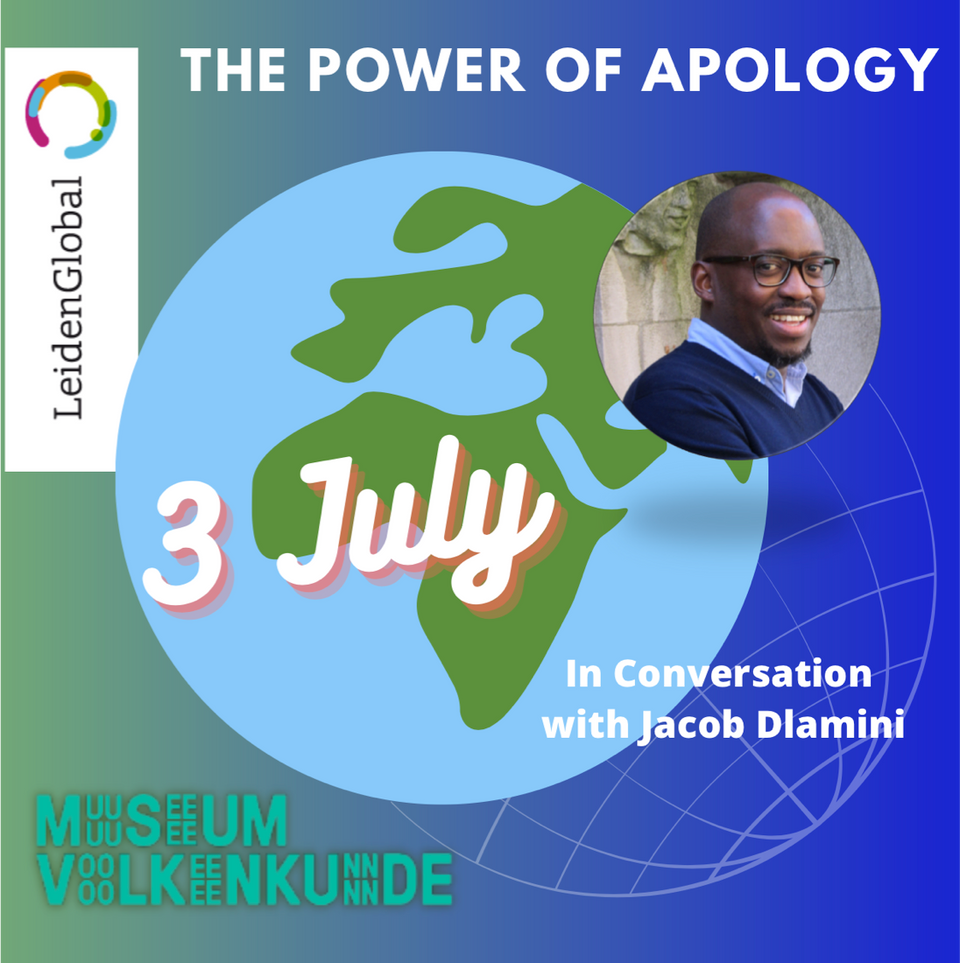LeidenGlobal Annual Event: The Power of Apology
Contact
Steenstraat 1
2312 BS LEIDEN Plan your route to LeidenGlobal Annual Event: The Power of Apology

The LeidenGlobal Annual Event will take place in collaboration with RCMC, the Research Institute of Museum Volkenkunde. The event will consist of a Graduate Workshop, followed up by a Plenary Session and drinks & bites afterwards.
For this LeidenGlobal Annual Signature Event, South African journalist, historian and author Jacob Dlamini will be in conversation with Wayne Modest (Director of Content, NMVW) and Carine Zaayman (Researcher, RCMC). The conversation will reflect on our current moment in time, marked by intensified focus on global inequality and discrimination.
Program
16:30-17:00 Reception with coffee/tea/soft drinks
17:00-18:00 In Converstation with Jacob Dlamini, with Q & A with the audience
18:00-19:00 Bites & Drinks
Content
Contextually, we note the apology issued in December 2022 by Mark Rut…
For this LeidenGlobal Annual Signature Event, South African journalist, historian and author Jacob Dlamini will be in conversation with Wayne Modest (Director of Content, NMVW) and Carine Zaayman (Researcher, RCMC). The conversation will reflect on our current moment in time, marked by intensified focus on global inequality and discrimination.
Program
16:30-17:00 Reception with coffee/tea/soft drinks
17:00-18:00 In Converstation with Jacob Dlamini, with Q & A with the audience
18:00-19:00 Bites & Drinks
Content
Contextually, we note the apology issued in December 2022 by Mark Rutte for the Netherlands’ role in the history of slavery. By drawing on examples from the South African past, we will explore if and how we might reckon with historical violence and oppression in the present. Against the background of Dlamini’s extensive archival research, we ask what happens if we think the museum as archive, while acknowledging archives as partial and uncertain records of the past. We will consider how these qualities hinder and assist us in the task of accounting for, with due complexity, those worlds entangled in colonialism and its afterlives.
Our conversation is situated in the context of a more sustained reflection on ‘history’ within the Research Centre for Material Culture (RCMC). The ethnographic museum has long been described as concerning itself with the ‘people without history’, or as representing those lifeworlds of the many peoples it was presumed to ‘collect’ as being ‘outside of history’. Today, these museums are at the centre of deep, protracted reckonings with history and with how the past continues to shape societies and impact relations in the present. Indeed, museum objects are witnesses of and testimonies to the past, excised and ‘preserved’ in the present. As remains, they are the present past. For ethnographic and world cultures museums, these object-remains are the afterlives of the colonial past in the present. It is in acknowledging how history lives on and continues to shape our present that we attempt to understand better the genealogies of the world we inhabit as we write (new) histories of the present.